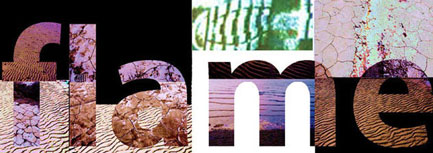
Co-editors: Seán Mac Mathúna • John Heathcote
Consulting editor: Themistocles Hoetis
Field Correspondent: Allen Hougland
"We are the most-watched nation in the world"
- Professor Clive Norris, the deputy director of the Centre for
Criminological Research in Sheffield The use of cameras to film people in the street
is banned in Germany, Canada and several other countries Pic of camera in London, UK from Selected
pictures from the contributions to the international day of protest
against video surveillance, December 24th At an international conference on CCTV at Sheffield
University in January 2004, Professor Clive Norris, the deputy director
of the Centre for Criminological Research in Sheffield, presented
alarming new research on the proliferation of circuit television
(CCTV) cameras in the UK. Monitoring every move of the general public,
the numbers of surveillance camaeras make the UK the most-watched
nation in the world. Norris concluded that there are now "at least" 4,285,000
surveillance cameras in operation in the UK. There are no official
government figures for the number of CCTV systems in Britain, so
Norris used a detailed study of surveillance cameras in London to
calculate his figure. Traditionally this level of surveillance and monitoring
of a population was associated with police states like the communist
East Germany and other Soviet satellite states during the cold war.
ironically, little more than 10 years after the collapse of East
Germany it is now the public of the UK who are the ones under surveillance:
and there is now one for every 14 people in the UK. Frith reports
that the increase of surveillance is happening at twice the predicted
rate, and that it is believed that Britain accounts for one-fifth
of all CCTV cameras worldwide. Londoners can each expect to be captured on CCTV cameras up to
300 times a day - the secret state can now follow you from you home,
onto to the bus, on the bus, getting off the bus and then follow
you along the street, and in some areas of the city of London, constantly
monitor your movements. On 12th January 2004, the Independent's (UK correspondent, Maxine
Frith reported that much of this filming breaches existing data
guidelines. She added that Civil liberties say that, in contrast
to other countries, members of the public are often unaware they
are being filmed, and are usually ignorant of the relevant regulations.
They also argue that there is little evidence to support the contention
that CCTV cameras lead to a reduction in crime rates. Barry Hugill,
a spokesman for the human rights and civil liberties organisation
Liberty, said: "This proliferation of cameras is simply astounding.
The use of CCTV has just exploded in the last few years, and what
is terrifying is that we are alone in the world for not even having
a debate about what it means for our privacy."